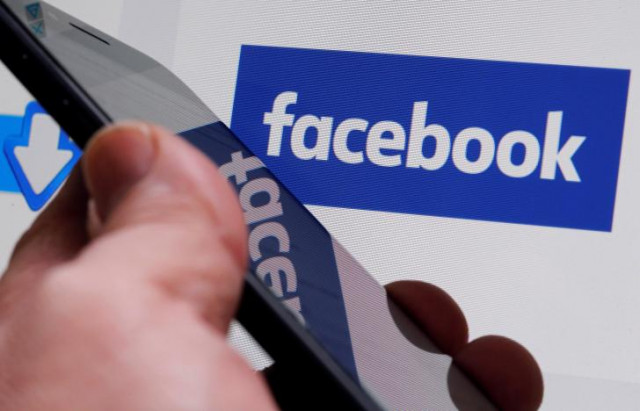Facebook vows aggressive investment as earnings surge
Facebook profits more than doubled in the final quarter of last year

Facebook profits more than doubled in the final quarter of last year. PHOTO: REUTERS
In earnings that topped most forecasts, Facebook said it made a net profit of $3.7 billion on revenue of $8.6 billion in the fourth quarter, as compared with profit of $1.6 billion on $5.6 billion in revenue in the same period a year earlier.
Meanwhile, the number of people using the leading social network monthly increased 17 per cent to 1.86 billion. The ranks of people accessing Facebook from mobile devices each month grew to 1.74 billion, an increase of 21 per cent from the same period a year earlier.
Money taken in from ads on mobile devices accounted for about 84 per cent of the social network's overall advertising revenue in the final quarter of last year.
Facebook to develop app for television set-top boxes: WSJ
"We believe concerns over user engagement and other social competitors are likely overblown, as few companies share Facebook's combination of scale, strong technology orientation, and platform breath/diversity," Baird research analyst Colin Sebastian said in a note to investors.
Facebook saw strong growth in Asia, with India being a hot market in the quarter. The social network still hopes to get into China, where the service is not allowed.
"Our mission is to connect everyone in the world and it's hard to do that over the long term if we don't find a way to serve the more than billion people who live in China," Zuckerberg said while answering questions from analysts on an earnings call.
"But one of the big things that we need to think about here is of course we're only going to do this in a he way that we're comfortable with over the long term."
Facebook shares jumped more than two per cent in after-market trades, returning to 15 cents above the closing price of $133.23 after chief financial officer David Wehner reminded analysts that the social network has essentially run out of spare room for ads and plans to invest "aggressively."
"Our business did well in 2016, but we have a lot of work ahead to help bring people together," said Facebook co-founder and chief executive Mark Zuckerberg.
"Our mission to connect the world is more important now than ever."
Under pressure to stymie the spread of fake news, Facebook last month modified its system for showing trending topics.
The change was intended to surface topics more quickly, capture a broader range of news, and help ensure that trends reflect real world events being covered by multiple news outlets.
Zuckerberg has sought to deflect criticism that the social network may have been used to fuel the spread of misinformation that influence the outcome of the 2016 US presidential race.
"We don't write the news that you read but we want to be a place where people can access information and have meaningful conversations," Zuckerberg said.
"In the past, we've taken steps to reduce spam and click-bait and now we're you approaching misinformation and hoaxes the same way."
Facebook executives expected spending on investment and hiring by the California-based company to leap 50 per cent or so from last year.
Company priorities include data centers, virtual reality, search and artificial intelligence.
AI has the potential to help figure out and find videos or other content people might like at Facebook, and to quickly recognize and remove posts that violate community standards, according to Zuckerberg.
Facebook tunes trending topics to better deliver news
"There's an increasing focus on objectionable content and a lot of unfortunate things that people share on Facebook," Zuckerberg said, stressing that it was a small piece of what was is shared at the social network.
"AI is both going to be great for showing people content that's really good and helping us enforce the community standards that we have to make sure that everyone has a good and fair experience."
Zuckerberg described virtual reality as a long-range investment and asked investors to be patient.
"We are going to keep making big investments in VR content and I'm excited about what's coming they 2017, from new games to more immersive educational experiences," Zuckerberg said.
A Texas jury Wednesday ordered Facebook and creators of its Oculus Rift to pay $500 million to gaming software firm ZeniMax in a lawsuit that claimed the virtual reality technology was stolen.
The lawsuit claimed Oculus founder Palmer Luckey and his colleagues developed the virtual reality gear using source code illegally obtained from the gaming firm.
ZeniMax had sought $4 billion in damages in the case, in which Zuckerberg testified to defend his company.
Facebook acquired Oculus in 2014 for more than $2 billion and last year began selling the Rift headsets as part of the social network's push into virtual reality.



















COMMENTS
Comments are moderated and generally will be posted if they are on-topic and not abusive.
For more information, please see our Comments FAQ